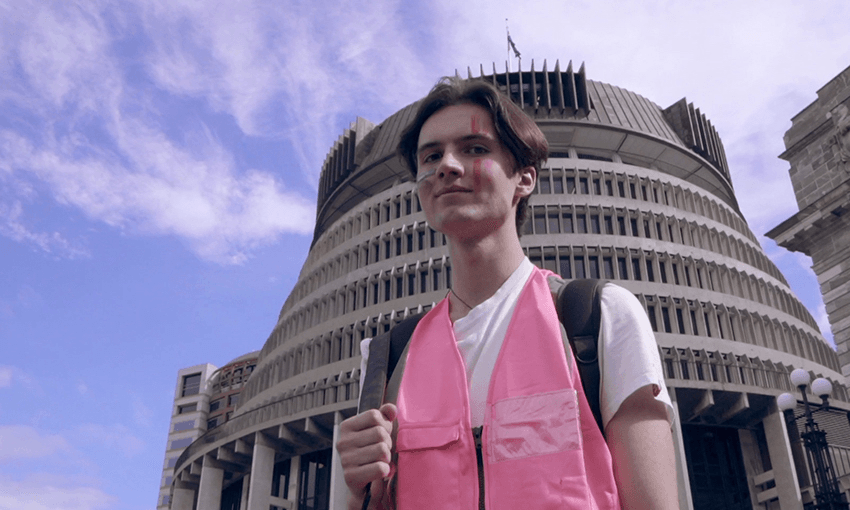New short film Rise profiles some of the country’s youngest protest organisers as they take to the streets to lead one of the generation’s biggest protest marches.
It’s only 16 minutes long, but Jess Feast’s new documentary elicits a sense of climate anxiety that lasts much longer. Filmed on September 27, 2019, the day of the historic school strike for climate, Rise follows several of the young activists responsible for bringing the global protest movement to New Zealand.
The film shows how heavily the climate crisis looms over these young people, more than it ever did their parents and grandparents. Anger and fear are at the heart of their motivations, but it’s the grief that hits hardest. They’re already in mourning for what inaction has wrought and will continue to cost us.
The school strike for climate saw an estimated 40,000 people take to the streets in Wellington and around 170,000 people marching nationwide. The marches were inter-generational but organised and led by students ranging in age from eight to 18.
They all have different drivers for their actions – the inaction of politicians, the lack of protests in their area or the imminent drowning of their homelands – but they’re united in their anxiety around a future where the land they live on is consumed by a growing ocean and biodiversity collapses, where natural food sources like marine life and agriculture are harder to manage.
Eulie, a primary school student, began organising at the age of seven when she found out there were no protests happening in her hometown of Lower Hutt. A born organiser, she’s disappointed in her local council, which “hasn’t really done anything much” about the climate crisis she sees as an obvious matter of urgency.
Isla is a well-known figure in climate action circles and is the hopeful, nervous voice of authority in Rise. “School striking is my job, essentially”, she says. She knows there’s no plan B if our ecology collapses. Her generation will need to take the emergency into their own hands and “it sucks that we have to be the ones to do it.”
The most affecting story is that of Taualofa, a high school student numbed by the thought that young Pasifika may never see the whenua of their ancestors. “Our Pacific people didn’t really do any harm, and yet we’ll be the first to go,” she says, fighting back tears. “It isn’t fair.” She marched with the Pacific Climate Warriors in last year’s march, who led the crowd of thousands from Civic Square to parliament.
They’re scared, they’re angry, and they’re heartbroken by what has been done to their world and what they will face. But on September 27 last year, they took back power, and hope. As one of their chants goes: “We’re not drowning, we’re fighting.”
Rise was produced with the kind support from the Doc Edge Rei Foundation Film Fund



